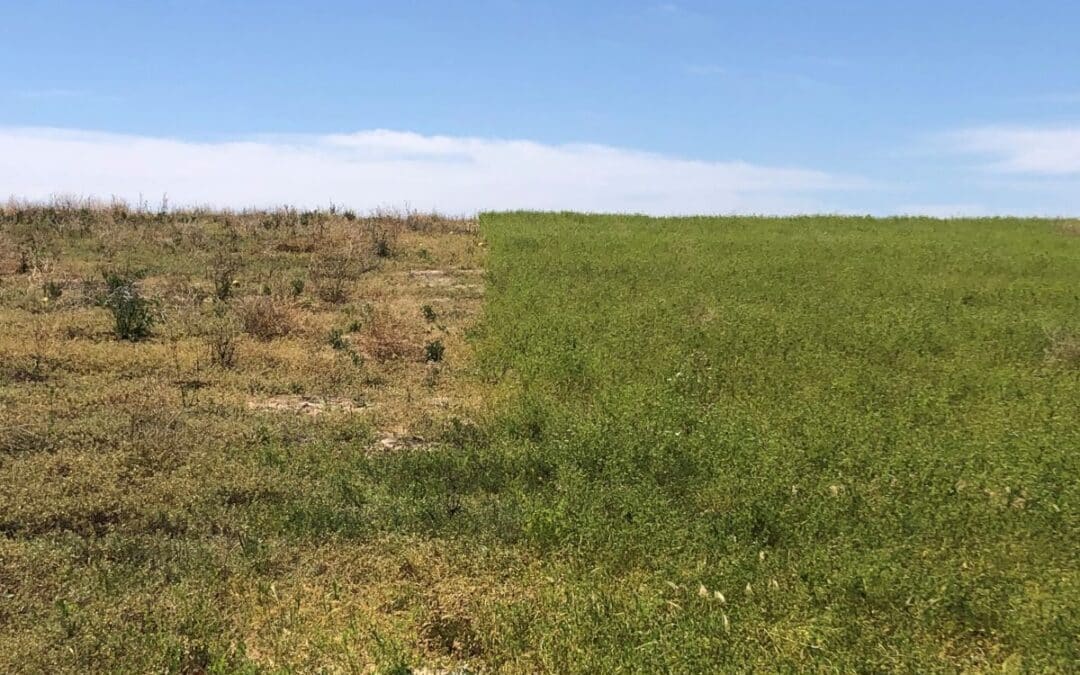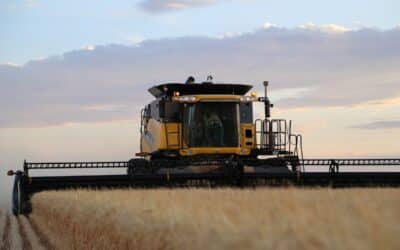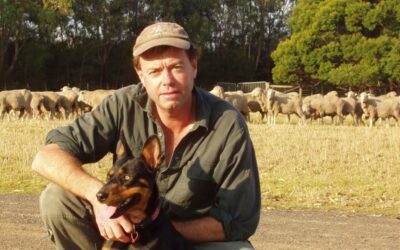Season 2, Episode 4
Prosperous pastures – managing your feedbase for dry conditions
With conditions drying out in 2023, many producers are concerned about whether their feedbase will get them through the season.
In this episode of the SA Drought Hub podcast, we hear from the University of Adelaide’s Associate Professor Matt Denton (left in photo) about the project he’s leading on feedbase management for improved drought resilience in low to medium-rainfall regions.

Matt is joined by Brenton Kroehn (right in photo), who runs Borung Poll Merino Stud near Waikerie. Brenton shares his experiences as a project partner providing trial and demonstration sites, and offers insights into feedbase management to help protect against the worst effects of drought.
The feedbase project – which complements the hub’s ‘Mixed species pastures demonstration sites’ project – aims to help producers extend the pasture growing season and increase pasture ground cover to protect soils. Means to achieve this include better-adapted pasture species and pasture mixtures, and improved use of technology for pasture establishment and management.
The work is funded by the Australian Government’s Future Drought Fund Drought Resilient Soils and Landscapes grants program, with additional support from the SA Drought Hub.
Photo at top: Frano serradella pasture demonstration trial (right) compared with a paddock with regenerating strand medic (left) on Eyre Peninsula. Both areas are un-grazed. In November 2022, Frano was still providing green feed on the dune systems (Photo: Dr Matt Denton, University of Adelaide).
Photo of Matt and Brenton taken by Dr Josh Philp, University of Adelaide.
Listen on Spotify
Listen on Apple Podcasts
Listen on Google Podcasts
Listen on RadioPublic
Listen on iHeartRadio
Building drought resilience in South Australia – the SA Drought Hub podcast
SA Drought Hub podcasts explore some of the exciting innovations that are enhancing drought resilience in South Australia. Producers, agronomists and researchers offer their insights for operating in an increasingly water-limited climate.




